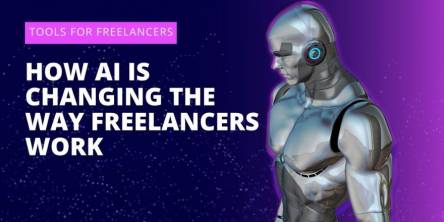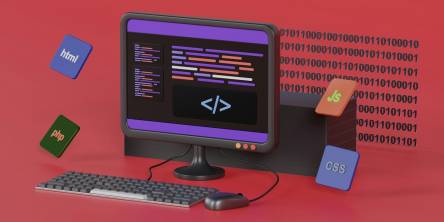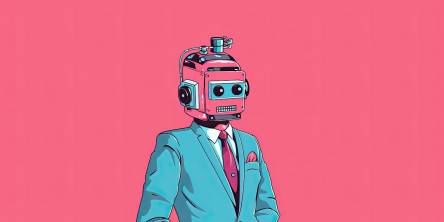Leveraging AI for Quality Engineering: Key Use Cases

It is clear as day to see that businesses today operate in an environment where software is a critical pillar for innovation and customer interaction. No wonder then that organizations are becoming increasingly reliant on sophisticated software apps to provide value. It is also how they can maintain a competitive advantage. As a result, the ability to respond quickly to market changes and provide timely software updates has become critical. Well, if you want your business to stay relevant of course.
This demand for rapid innovation in software development emphasizes the critical importance of advanced solutions. To that end, AI has emerged as a potential driver of efficiency in quality engineering by improving various aspects of the process. Integrating AI into quality assurance processes, for starters, stands to boost speed and innovation. This is done by automating tasks and streamlining workflows.
Ask any modern software quality engineering services provider and they will tell you that the union of AI and quality engineering marks a substantial advancement in how software is developed and tested. In this blog, I will discuss some of the most important use cases of this technology in quality engineering to further demonstrate its potential.
What Refers to as Quality Engineering?
The term refers to a broad field that includes all aspects of software development, from initial design to ongoing maintenance. Quality engineering is more than just technology, then. It also includes management and how various parts of an organization collaborate to ensure quality. A key takeaway here is the emphasis on an 'end to end' approach, i.e. quality is considered at all stages.
AI + Quality Engineering: Top Use Cases You Simply Can't Ignore
AI is revolutionizing quality engineering by improving the speed, accuracy, and intelligence of testing. Its impact is revolutionary, ranging from autonomous testing to predictive flaw identification. Companies using AI in QA are cutting risks and increasing productivity like never before. We'll go over the most important use cases that you can't overlook in this guide. Let's explore how quality engineering is being transformed by AI.
- Automated testing: AI driven automated testing makes use of ML algorithms to analyze the app's user interface and underlying code. This is to help one understand its behavior. This allows for the automatic generation of test scripts, thus reducing the manual effort required in test development. Furthermore, AI can respond to changes in the user interface by automatically updating test scripts.
- Defect prediction: AI algorithms can identify areas of software that are more likely to contain future flaws. This is made possible by analyzing historical data, with the ensuing predictive capability helping quality engineering teams to prioritize their testing efforts. It also helps them concentrate resources on high risk areas to increase the likelihood of detecting critical defects early in the development cycle.
- Self healing systems: AI can enable systems to detect and resolve issues without human intervention. This improves the stability and efficiency of testing processes. For example, if a test environment becomes unstable, AI can analyze logs and initiate corrective actions. Similarly, when a test fails, AI can examine the failure logs to determine the root cause.
- Intelligent test data generation: AI algorithms can generate realistic synthetic data that closely resembles production data. Just so you know, this synthetic data can encompass a wide range of scenarios and edge cases that would be difficult to create by hand. So AI can analyze app requirements and code to generate test data that maximizes test coverage.
- Performance optimization: AI assists in this regard by analyzing performance metrics and system behavior. AI algorithms can detect anomalies in performance patterns, indicating potential issues that need to be investigated. The tech can also identify the root causes of performance issues by analyzing various indicators.
- Continuous quality monitoring: AI provides real-time insights into software quality by continuously analyzing data from multiple sources. This continuous monitoring enables teams to detect emerging quality issues before they significantly impact users. The quality insights generated by AI then help enable teams to make informed decisions about releases and future development efforts.
Final Words
Software development is becoming more rapid, intelligent, and efficient thanks to AI, which is also redefining quality engineering. Businesses' methods for ensuring software stability are being completely transformed by AI-driven solutions like automated testing, predictive defect analysis, and self-healing systems. It is now crucial to incorporate AI into quality engineering as the need for quick innovation increases. Businesses may stay ahead of the competition in the cutthroat digital economy of today by implementing these innovations, which improve product quality, lower risks, and speed up time to market. Clearly, AI has plenty to offer in terms of software quality. So go on and start looking for a software quality engineering services expert.
Similar Articles
How AI SDRs turn first contact into booked meetings with smart outreach strategies in this step-by-step journey breakdown.
How AI is transforming freelancing by boosting productivity, streamlining tasks, and reshaping the future of independent work.
AI chatbots are reshaping scam prevention with real-time detection, deepfake defense, and personalized protection against cybercriminals.
When I first started working in branding, creating a logo was a long and expensive process. Ordering from a designer required weeks of discussions and a budget that small businesses often couldn’t afford.
Generative AI is not just another addition to the toolbox of products; it will soon serve as the co-pilot for the entire lifecycle process, including discovery and delivery.
Learn how AI code generation speeds up software development by reducing repetitive tasks, improving code quality, and supporting Agile and DevOps teams.
Explore how AI is reshaping the workforce, from emerging jobs and essential skills to global opportunities, and learn how to adapt and thrive in an AI-driven economy.
Artificial Intelligence (AI) has transformed most industries to be more efficient, individualized, and automate the heavily complicated tasks. Nevertheless,
Transform your photo into a Disney Pixar style character with Xole AI. Create high quality cartoon images in just three simple steps.









